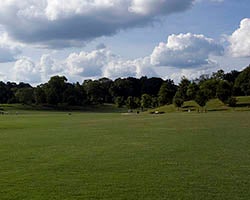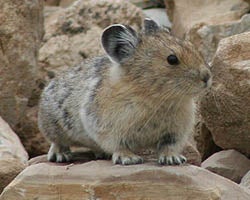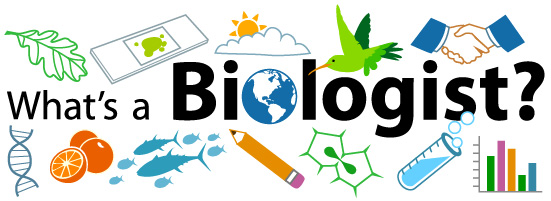Exploration and Discovery in Biology
While becoming a biologist can require lots of training, anyone can be a biologist.

If you’ve ever been outside and caught yourself staring at a bug or animal, you have the curiosity to be a biologist. If you like to solve problems or build things, you have the creativity to be a biologist. If you’re a hard worker or you like to learn, you have the dedication to be a biologist.
Because biologists study living things, it’s easy to find a field site anywhere around you. When you see a place that is interesting to you, remember to explore, ask questions, and record your observations.
As biologist Nina Jablonski will tell you, simply following your curiosity can bring you tremendous excitement and rewards that many biologists experience:
or download the mp3 here.
Check out our podcast for the rest of Nina's interview about the science of skin.
How Can You Learn More About Biology?
If you are able to get online or go to the library, there are many biology resources available. These resources can help you learn about the things you see. For example, if you want to learn more about the trees and plants around your house, you could find plant guides or information on popular gardening plants. Such resources can help you learn more about what grows around you.
There are many online resources available to help you learn more about biology, even before you begin your training in school. Visit our Links page for more information.
How You Can Help Out and Get Research Experience

You can also get involved with existing research. You can volunteer to work with specific researchers, as we discuss in our Career Tips page, but you can also collect data for a project in citizen science.
Citizen science enables the public to help out on special studies. Usually people make observations of certain plant or animal species and record them as part of a larger data set. Make sure to check out our Links page for a few examples of projects in which you can get involved.
Ochlawaha bog image by Sue Cameron.
Read more about: What's a Biologist?
Bibliographic details:
- Article: How To Get Started In Biology
- Author(s): Dr. Biology
- Publisher: Arizona State University School of Life Sciences Ask A Biologist
- Site name: ASU - Ask A Biologist
- Date published:
- Date accessed:
- Link: https://askabiologist.asu.edu/explore-and-discover
APA Style
Dr. Biology. (). How To Get Started In Biology. ASU - Ask A Biologist. Retrieved from https://askabiologist.asu.edu/explore-and-discover
Chicago Manual of Style
Dr. Biology. "How To Get Started In Biology". ASU - Ask A Biologist. . https://askabiologist.asu.edu/explore-and-discover
Dr. Biology. "How To Get Started In Biology". ASU - Ask A Biologist. . ASU - Ask A Biologist, Web. https://askabiologist.asu.edu/explore-and-discover
MLA 2017 Style

Biologists spend a lot of time observing the world around them. Here biologist Sue Cameron gazes over the Ochlawaha bog.
Be Part of
Ask A Biologist
By volunteering, or simply sending us feedback on the site. Scientists, teachers, writers, illustrators, and translators are all important to the program. If you are interested in helping with the website we have a Volunteers page to get the process started.

